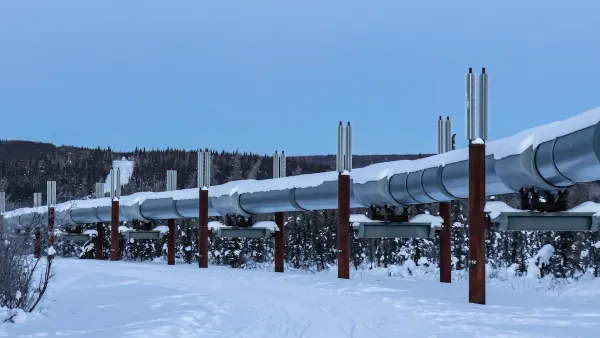The fossil fuel industry has convinced the public that aggressive carbon reduction will harm the economy. Au contraire. The carbon reduction leader will secure its place at the top of the global economy, argues UrbDeZine Editor Bill Adams.
Somethings, in hindsight, are obvious, though not so much before. The beneficial impact on the economy of reducing carbon will be the next such thing, opines Bill Adams, a San Diego land use attorney and editor of UrbDeZine. The fossil fuel industry has managed to convince the country that the harm to their interests from conversion to clean energy will be a sacrifice shared by all. In fact, opines Adams, conversion to carbon neutral energy is inevitable. It is inevitable because the alternative is catastrophic for the planet. And because it is inevitable, so is conversion to carbon neutral energy sources.
Accordingly, the boom in carbon reduction technology is inevitable—it has already begun but will continue to grow exponentially. Thus, failing to act quickly and robustly in supporting carbon neutral technology will cause the United States to miss the opportunity to fully share in the economic benefits that will be bestowed on the technological leaders of the inevitable conversion. Adams asserts:
While the U.S. is still one of the top investors in carbon neutral energy, China is number one. Coupled with it’s manufacturing prowess, China stands poised to make the U.S. a customer rather than a producer or patent holder, while congress and state legislators do the bidding of the fossil fuel industry. Even some fossil fuel companies recognize the inevitability of addressing climate change, albeit in a Machiavellian manner: For example, ExxonMobile is promoting and investing in geo-engineering the climate by pumping sulfate aerosols into the atmosphere, at the same time it funds climate change skepticism. However, geo-engineering is widely considered a far more risky and inferior way to deal with climate change than carbon reduction. Thus, ExxonMobile hopes to profit by sinking the ship while owning the lifeboats.
Adams concludes:
This battle between Old and New, is not greens vs. greenbacks. It’s greens and new greenbacks, on the one side vs. old greenbacks, on the other side. The earth and economic growth are on the same side.
FULL STORY: Who will win the carbon reduction economy?

Analysis: Cybertruck Fatality Rate Far Exceeds That of Ford Pinto
The Tesla Cybertruck was recalled seven times last year.

National Parks Layoffs Will Cause Communities to Lose Billions
Thousands of essential park workers were laid off this week, just before the busy spring break season.

Retro-silient?: America’s First “Eco-burb,” The Woodlands Turns 50
A master-planned community north of Houston offers lessons on green infrastructure and resilient design, but falls short of its founder’s lofty affordability and walkability goals.

Test News Post 1
This is a summary

Analysis: Cybertruck Fatality Rate Far Exceeds That of Ford Pinto
The Tesla Cybertruck was recalled seven times last year.

Test News Headline 46
Test for the image on the front page.
Urban Design for Planners 1: Software Tools
This six-course series explores essential urban design concepts using open source software and equips planners with the tools they need to participate fully in the urban design process.
Planning for Universal Design
Learn the tools for implementing Universal Design in planning regulations.
EMC Planning Group, Inc.
Planetizen
Planetizen
Mpact (formerly Rail~Volution)
Great Falls Development Authority, Inc.
HUDs Office of Policy Development and Research
NYU Wagner Graduate School of Public Service




























